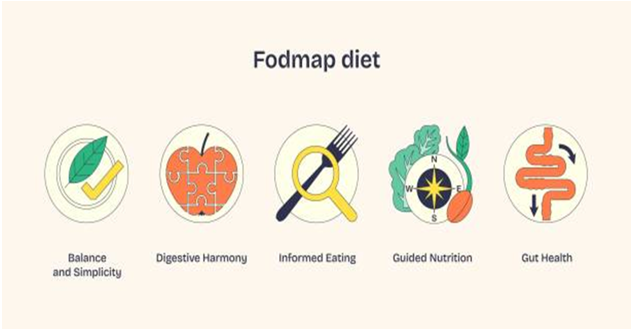SIBO (Small Intestinal Bacterial Overgrowth) is a condition that develops due to the abnormal proliferation of bacteria normally found in the small intestine. This condition can negatively affect digestive system health and manifest itself with various symptoms. SIBO can cause digestive problems such as bloating, gas, abdominal pain, diarrhea, or constipation and can cause more complex health problems if left untreated.
Causes of SIBO
Various biological and environmental factors can cause the development of SIBO. These factors generally upset the bacterial balance in the small intestine.
- Use of proton pump inhibitors (PPIs)
PPIs can make patients prone to bacterial overgrowth by reducing stomach acid - Intestinal Movement Disorders:
Impaired peristaltic movements in the small intestine can cause bacteria to migrate and multiply. This is often associated with neurological and metabolic diseases such as diabetes, hypothyroidism, and Parkinson’s disease. - Abnormal Intestinal Anatomy:
Structural changes in the intestines such as diverticula, strictures (narrowings), or surgical interventions can lead to the accumulation of bacteria. - Weakening of the Intestinal Barrier:
Increased permeability in the intestinal wall (leaky gut syndrome) can facilitate the growth of bacteria in the small intestine. This disrupts the balance of intestinal flora and can lead to inflammation. - Antibiotic Use:
Long-term use of antibiotics can destroy healthy intestinal microbiota and cause pathogenic bacteria to multiply. This is an important risk factor for the development of SIBO. - Weak Immune System:
In cases where the immune system is weakened (e.g. HIV/AIDS), bacterial control decreases and bacterial growth in the small intestine can accelerate.
Symptoms of SIBO
The symptoms of SIBO are quite diverse and can vary from person to person. The most common symptoms include:
Bloating and Abdominal Pain:
One of the most common symptoms of SIBO is a feeling of bloating and pain in the abdominal area. Bacteria produce gas when fermenting food, which causes bloating.
Gas:
Bacteria produce gas when fermenting carbohydrates, which causes excess gas.
Digestive Problems (Diarrhea or Constipation):
SIBO can affect intestinal motility, which can lead to digestive problems such as diarrhea or constipation.
Loss of Appetite and Weight Loss:
In advanced cases, SIBO can interfere with nutrient absorption, which can lead to loss of appetite and weight loss.
Fatigue and Weakness:
Bacterial overgrowth and impaired nutrient absorption can lead to general fatigue and weakness.
Diagnosing SIBO
The most common method used to diagnose SIBO is the Breath Test (Lactulose and Glucose Test). This test measures the levels of hydrogen and methane gases in a patient’s breath after they drink a specific sugar solution. In SIBO, bacteria ferment these sugars to produce gas, which is detected in the breath.

SIBO Treatment
Treatment for SIBO usually involves several steps and is personalized based on the patient’s symptoms, the severity of SIBO, and the underlying cause.
- Antibiotic Therapy:
Broad-spectrum antibiotics, such as rifampin, are the most common medications used to treat SIBO. These medications help kill bacteria that grow in the small intestine. - Dietary Changes:
FODMAP is an acronym for “Fermentable Oligosaccharides, Disaccharides, Monosaccharides, and Polyols,” and this term refers to certain short-chain carbohydrates that are difficult to digest. High-FODMAP foods can cause digestive problems in some people, especially those with conditions like Irritable Bowel Syndrome (IBS). These foods can ferment too much in the intestines and cause gas, bloating, and abdominal pain. A low FODMAP diet can help reduce the symptoms of patients with SIBO. The FODMAP diet recommends limiting such foods during certain periods. However, it should be noted that foods containing FODMAPs are not equally effective for every individual and vary from person to person. Some people are more sensitive to these foods, while others can consume them comfortably. It will usually be useful to get help from a nutritionist to implement the FODMAP diet.
Consuming raw vegetables and fruits at dinner can trigger gas formation.
- Phytotherapeutic Aids:
Peppermint oil, lemon oil, patchouli oil, thyme oil, homemade apple cider vinegar, coconut oil, and bitter melon can be used during treatment, and the frequency and amounts of use should be planned by a dietitian or doctor according to the person.
Probiotics can help rebuild healthy intestinal flora. However, the effects of probiotics in patients with SIBO should be evaluated carefully, as some strains of probiotics may cause bacterial overgrowth.
Esra Toktay
Nutritionist
Mail: dytesratoktay@gmail.com
Instagram: @uzmandiyetisyenesratoktay
References
Fasano, A. (2012). “Leaky Gut and Autoimmune Diseases.” Clinical Reviews in Allergy & Immunology.
Hylemon, P. B., et al. (2011). “Gut microbiota in health and disease.” Frontiers in Microbiology.
Macfarlane, G. T., & Macfarlane, S. (2012). “The microbiota of the human gastrointestinal tract.” Inflamm. Bowel Dis..
Muir, J. G., et al. (2009). “Low FODMAP diet for the treatment of irritable bowel syndrome and inflammatory bowel disease.” Journal of Gastroenterology and Hepatology.
Pimentel, M., et al. (2000). “Methanogens in human health and disease.” American Journal of Gastroenterology.
Pimentel, M., et al. (2010). “A test of the breath hydrogen test to identify patients with small intestinal bacterial overgrowth.” The American Journal of Gastroenterology.
Pimentel, M., et al. (2011). “Small intestinal bacterial overgrowth in irritable bowel syndrome.” Journal of Clinical Gastroenterology.
Troy, E. B., et al. (2009). “Probiotics and prebiotics in gastrointestinal diseases.” Current Opinion in Gastroenterology.
Rao, Satish S. C. et al. (2019). ‘’Small Intestinal Bacterial Overgrowth: Clinical Features and Therapeutic Management ‘’ Clinical and Translational Gastroenterology



